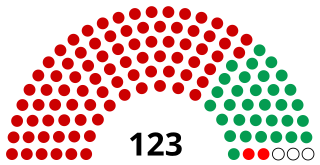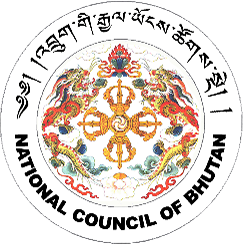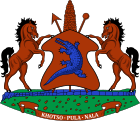
The history of people living in the area now known as Lesotho goes back as many as 400 years. Present Lesotho emerged as a single polity under King Moshoeshoe I in 1822. Under Moshoeshoe I, Basotho joined other clans in their struggle against the Lifaqane associated with famine and the reign of Shaka Zulu from 1818 to 1828.

The National Assembly is the lower chamber of Parliament in Burundi. It consists of 100 directly elected members and between 18 and 23 co-opted members who serve five-year terms.

The Federal National Council (FNC) of the United Arab Emirates (UAE) is an advisory quasi-parliamentary body in the UAE. The FNC consists of 40 members. Twenty of the members are indirectly elected by the hand-picked 33% of Emirati citizens who have voting rights through an electoral college, while the other twenty are appointed by the rulers of each emirate. According to Reuters, "the process of selecting the people who can either elect or be elected is opaque."

The Council of States was the upper house of the parliament of Sudan from 2005 to 2019. It was established as part of the Comprehensive Peace Agreement (CPA) which aimed to end the long-standing civil war between the Sudanese government and rebel groups in southern Sudan. The CPA provided for the creation of a bicameral National Legislature, consisting of the Council of States and the National Assembly.

The National Assembly is the lower house of the National Legislature of Sudan. The legislature was unicameral until 2005. The upper house is the Council of States.

Ntlhoi Motsamai is a Lesotho politician who served as the first female Speaker of the National Assembly from 1999 to 2012. She was elected again from March 2015 to June 2017. Motsamai worked as a teacher before entering politics.

Phandu Tombola Chaka Skelemani is a Motswana politician who is the former speaker of the National Assembly of Botswana having served from 2018 to 2024. He served in the government of Botswana as Minister of Foreign Affairs from 2008 to 2014. A member of the Botswana Democratic Party (BDP), Skelemani was a Member of Parliament in the National Assembly of Botswana, a position he vacated following the defeat of the Botswana Democratic Party in November 2024, and a member of the Pan-African Parliament from Botswana, and he served as Attorney-General of Botswana from 1992 to 2003.

The National Council is the upper house of Bhutan's bicameral Parliament, which also comprises the Druk Gyalpo and the National Assembly.

The Speaker of the House of Assembly of Dominica is responsible for the management and general administration of the House, ensuring that rules of procedure are followed. The Speaker is elected by the House of Assembly at its first sitting after a general election.

The Reconstituted Transitional National Legislative Assembly is the lower house of the Transitional National Legislature of South Sudan.
Sephiri Enoch Montanyane is a Lesotho politician. He served as the Speaker of the National Assembly of Lesotho from June 2017 to October 2022 in lower chamber of the Lesotho Parliament. Montanyane was formerly a Minister in the Prime Minister's office. He was first elected to the National Assembly from Malimabatso constituency in the 1965 elections. He was the minister of justice in 1990s.










